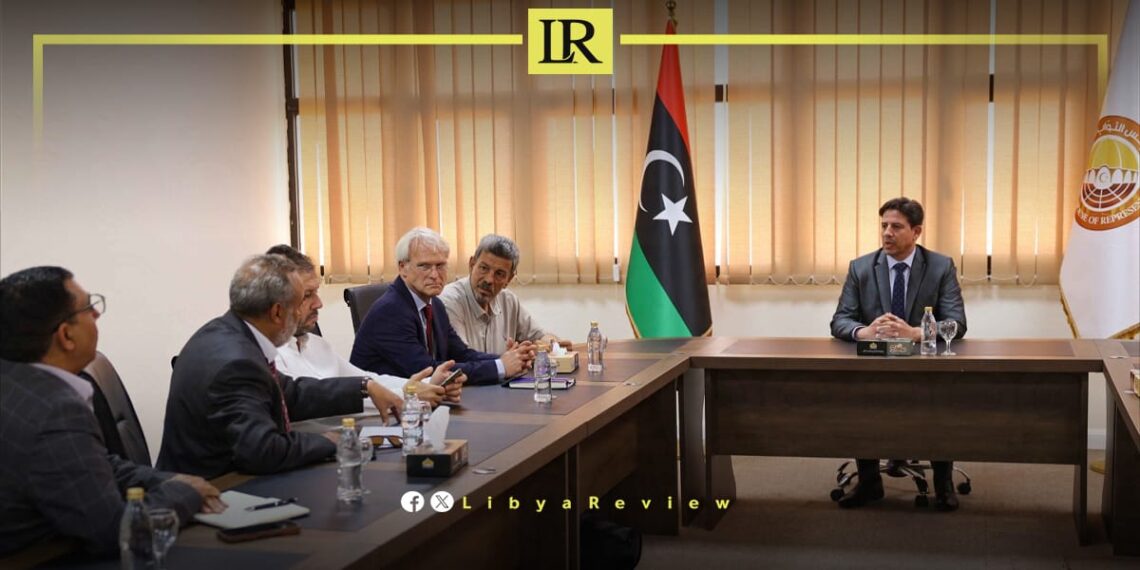The Foreign Affairs and International Cooperation Committee of Libya’s House of Representatives met on Monday with Daniel Strox, Director at Germany’s Berghof Foundation and envoy of the Swiss Foreign Ministry, to discuss progress on Libya’s national reconciliation file.
The high-level meeting, held at the parliamentary headquarters in Benghazi, also included representatives from key Libyan dialogue institutions. Among them were Tarek Al-Seddiq from the foundation’s planning office, Dr. Moftah Al-Hareer, Director of the Libyan Dialogue Center at the Libyan International University, and Dr. Ashraf Al-Kreimi, Rapporteur of the National Dialogue Center at the same university.
Despite coinciding with a full session of Parliament, the committee emphasized the importance of holding the meeting, citing national reconciliation as one of the legislature’s top priorities. It reiterated that the House of Representatives has fulfilled its legislative responsibility by drafting the National Reconciliation Law and participating in various dialogue forums—including the January 2023 preparatory conference held in Tripoli.
Committee members underlined that Libya’s eastern capital, Benghazi, had emerged from years of turmoil thanks to the sacrifices of the Libyan National Army, enabling eastern and southern regions to now focus on reconstruction. The committee also called for the unification of the military institution and an end to institutional division, highlighting the need for border security and control of irregular migration flows.
The delegation praised the active role of the African Union in fostering reconciliation efforts through initiatives and peacebuilding experience. The committee stressed the importance of inviting Libya’s security agencies to take part in reconciliation efforts and reaffirmed the African Union’s status as a key partner in Libya’s path toward peace and stability.
Mr. Strox thanked the committee for its warm reception and stressed that his mission involved listening to all stakeholders in the reconciliation process. He commended the House’s extensive efforts and pledged to share the findings of his visit with the committee.
In closing, the committee reiterated that national reconciliation is among Libya’s most vital strategic projects, praising the Presidential Council’s role in organizing workshops and emphasizing that success requires resolving institutional divisions and forming a unified government.


